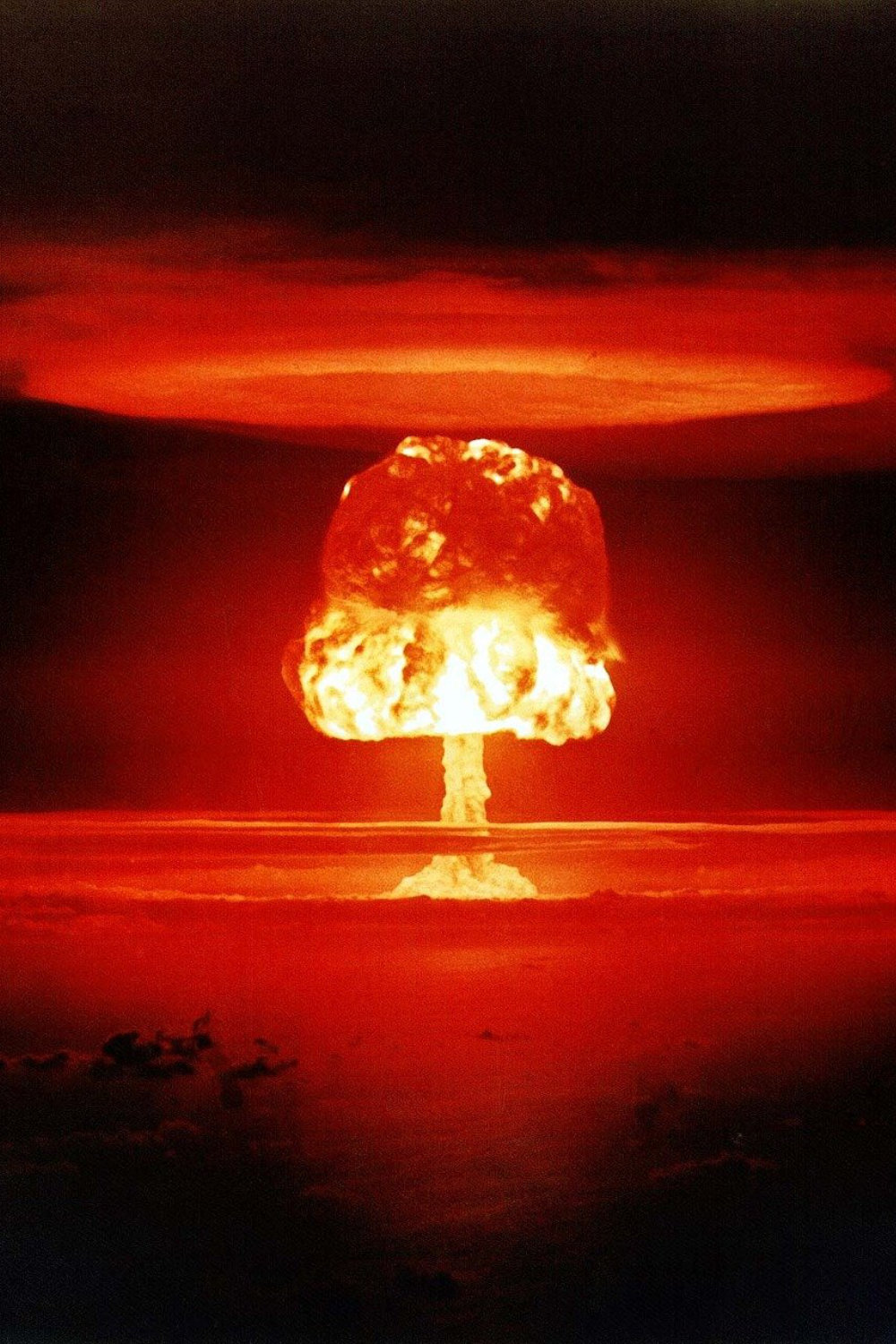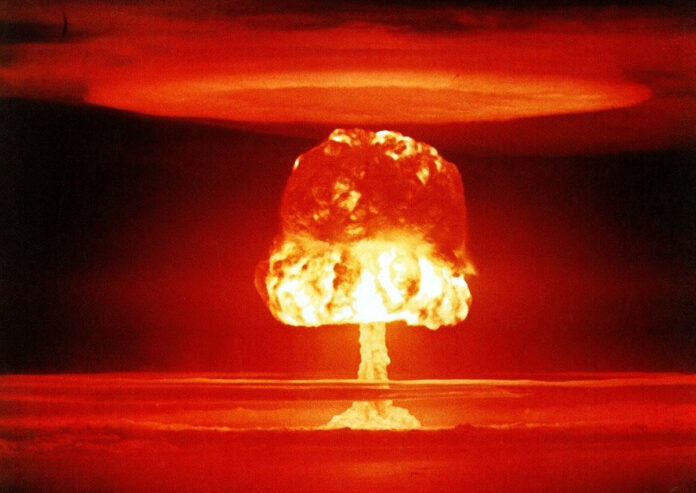Last week, China told people to stock up for the winter. Immediately the Chinese people assumed that this was because China was going to invade Taiwan and there was a huge rush on stores (vegetables reportedly doubled in price due to demand) and the topic soared to the top of online conversations. This tells us a few things:
- The Chinese people believe China will invade Taiwan, possibly soon. Maybe we should listen to them. (Paging General Milley.)
- Food won’t stay on store shelves long in an emergency. We expect it to last three days; that may well be too generous.
- China warns their people about an impending problem and encourages them to stock up. Our government doesn’t.
How to Prepare if China Invades Taiwan
I have discussed this topic before, and I think the following question remains valid: Would China invade Taiwan as a stand-alone action, or would they also pre-emptively strike U.S. targets in and around the South China Sea? I think the latter is more likely.
In that case, it would not surprise me if China encouraged North Korea to become more aggressive, possibly going so far as to launch missiles at Japan or U.S. bases that are within range. China could then pretend they had nothing to do with it while taking advantage of the situation. I doubt there can be a small war in the Pacific; anything that happens will mushroom into a larger action as the U.S. and its allies engage China and possibly North Korea.
Nuclear vs. Conventional
My reaction to a war with China would depend a great deal on how America reacts from a military standpoint, what are the odds nuclear weapons would be used, and how people behave. Would we pull together, like we did on 9/11, or would people panic? Think of how quickly people would try to get out of places like Washington and Los Angeles if they felt they were a bullseye for Chinese nukes.
Even in a conventional war, the disruption caused by hostilities between the United States and China would have a massive impact on our way of life. You think we are seeing supply problems now? Wait until a ship can’t get in or out of the South China Sea because we have blockaded it and our submarines will sink them. I expect such a war would also tank the stock market and cause all sorts of economic problems, not just for U.S. but globally.
As much as I like to think Americans would pull together politically to fight a common enemy, the negative side effects of war with China would be so extensive that it could lead to all sorts of domestic problems, caused in part by shortages and rationing.
Other Affects
The biggest impact would be the immediate cessation of imported goods from Asia, including raw materials, parts, and finished goods. This would give us shortages and supply chain problems ten times worse than we have today. Right now, many goods are on ships waiting to unload. If China and the U.S. are at war, there will be no boats to unload; commerce would stop. We would try to keep goods like food, oil, and coal from reaching China; they would try to stop ships from Vietnam, Japan, Thailand and other Asian ports from reaching us.
This would hurt the U.S. economy and consumer spending would collapse because so many of our goods are made in that part of the world. Household furnishings, apparel, footwear, electronics, machinery, etc. Even things made in the U.S. depend on parts, wiring harnesses, chips and batteries produced in Asia. Electronics and anything using semiconductors made in Taiwan or South Korea would disappear from the market. Businesses would close and jobs would be lost on a large scale.
I expect our government would immediately sanction Chinese banks and freeze assets in the U.S. We might nationalize any Chinese assets they have here, from companies to real estate. During the World Wars, the U.S. seized assets, including entire companies, from Germany companies and then sold them off to the highest bidder. This could well happen again, and China would probably do the same to us. This would drive down the value of Chinese companies with U.S. assets or who trade with the U.S., causing additional harm to their economy. It would also hurt U.S. and global companies with assets in China.
This will not be a small war; it will become World War III, and it will be the deadliest and most destructive of them all.
What to Do?
Let’s imagine that out of the blue, you get a text from a friend that says, “OMG, China just attacked Guam, sank one of aircraft carriers and is bombing Taiwan. I’m freaking out!” You turn to your favorite news source and learn that it’s true. What do you do?
Assuming that you are pretty well prepared from a food, water, shelter, medical, and self-defense position, your biggest concerns are:
The Nuclear Threat
Do you live in a nuclear target zone? I consider these to be areas near major cities, large military bases or ports, nuclear silos, and large factories that might be important to the defense industry or national interests. If you do, then you need to consider bugging out. I would be even more concerned on the West Coast because North Korea and their nukes are a wild card.
Personal Finance
It is entirely possible that the U.S. would declare a bank holiday and halt any stock trading. I recommend you go to the bank or your local ATM and withdraw as much money as possible. In the coming days, you might need some cash. Stocks could be frozen for days and I would expect a run on banks. There could also be immediate inflation as prices on anything made overseas double.
I advocate getting out of debt rather than accumulating it, but if you have a credit card upon which you can take cash advances, this may be the time to do so, especially if you do not have sufficient cash in the bank that you can withdraw.
Shortages
Look at your preps and then evaluate what you use every week or month and then fill in any blank spots. Of greatest concern should be consumable items things made overseas. I often highlight shoes because 98 percent of all shoes sold in the U.S. are made abroad with 75 percent made in China. Apparel is another big import. You want to have enough shoes to last a few years so you don’t have to walk around in sandals made from an old tire.
While we are on the topic, I think these are about the best boots you can buy, and this is not a paid or affiliate link. I just like these boots and have worn them for years.
Maybe you need toilet paper, maybe you want to stock up on more canned soup, or flour. Maybe you decide to buy that new phone before the supply dries up. Whatever the case, if you need it, the sooner you buy after war breaks out, the better.
Pay the most attention to buying things you need to survive, rather than luxury items.
For us, pet food and livestock feed will be one of those things we stock up on at the last minute because it does not have a long shelf life. While all of them are domestically made, I believe there will be a significant amount of disruption to the U.S. supply chain during and after a war. There is also the possibility that the government will use the war as an excuse to declare martial law and halt or limit interstate travel. This is another reason why it is important to have a line with local producers, as we have discussed before.
What I Would Do
If I were at home–and chances are high that I would be–when that text came in, this is what I would do in pretty much this order:
- Sell some investments in ETFs and hold cash, if it’s not too late.
- Send my wife to Walmart while I go to Sam’s Club and buy everything on our emergency purchase list. This includes fresh foods that will last, such as potatoes, onions, winter squash, and cabbage, plus pasta sauce and other canned and dried foods. Then go to the local general store and/or Tractor Supply and buy chicken feed, grit, scratch and other supplies to last at least six months. To be on the safe side, we would each buy Carhartt overalls and a pair of boots, plus a Carhartt jacket for my wife.
- While we are out, stop at ATMs and withdraw as much cash as we can, fill both car tanks. Top up any gasoline storage tanks. Order two more cords of firewood. Call kids and friends and invite any who want to stay with us for the duration. Then batten down the hatches and hold the fort until we know who is bugging out to our place and what is happening on the world stage.
I am not personally worried about the direct effect of nuclear weapons because we live in the middle of nowhere and have mountains on all four sides. We would have to deal with fallout, but we will avoid any blast wave or other impact-related problems as the effect will largely be directed up and over us.
Afterwards
I expect we would find out relatively quickly if this will be a conventional or nuclear war and adjust our plans accordingly. If it goes nuclear, then I expect we will experience a full-fledged global disaster of epic proportions. I’m talking massive global upheaval, no utilities in much of the U.S., chaos in the remaining cities, and a huge die-off. If you expect to live through the initial bombs, then it would be a good idea to have a way to shelter from the inevitable fallout and a plan for long-term grid-down survival complete with nuclear hot spots.
If the invasion remains conventional, then we have a whole host of different, but somewhat less devastating, issues to deal with. The U.S. would be on a war-time footing. That means thousands of American soldiers sent off to war while the rest of us are glued to our screens watching it unfold. It means billions spent on defense with either higher deficits or higher taxes. It will probably mean extensive shortages and rationing.
The government may use “national security” as an excuse to limit our freedoms, including the freedom to move about the country or to own guns. They may limit use of the Internet, crack down on social media, or increase monitoring and censorship.
Long Term Fallout
Longer term, the war will change us and our relationship with most of the other countries around the world. It might be for the better, but going through the change will be neither easy nor fun. If the war reaches our shores, it could also change our society and leave us rebuilding. It might be the end of the dollar and America’s global hegemony. Again, that could be for the best, but expect recovery to take some time.
40 years ago, we prepared for war against the Soviet Union and wondered if anyone would survive. From this point forward, we must prepare for a large-scale war with China.
Our goal as preppers is to survive all phases of such a war, from the initial days, to any subsequent attacks on our soil, to the fallout, be it nuclear, political, social, cultural, or some combination thereof. That’s an enormous challenge.
How prepared are you?









